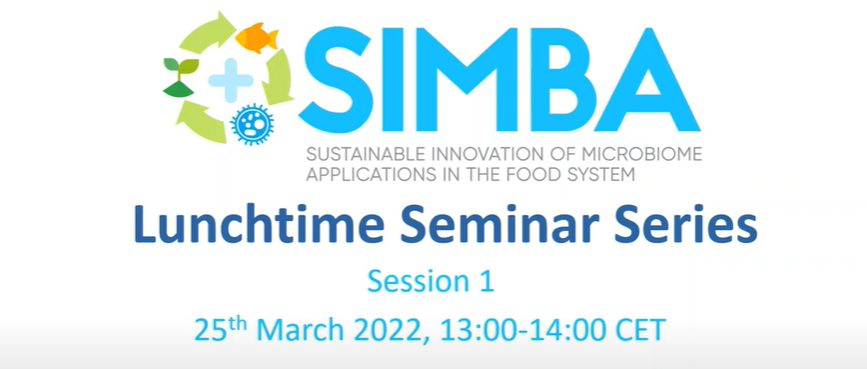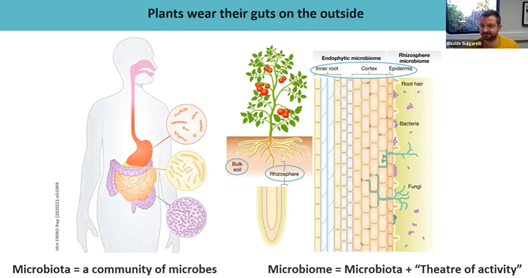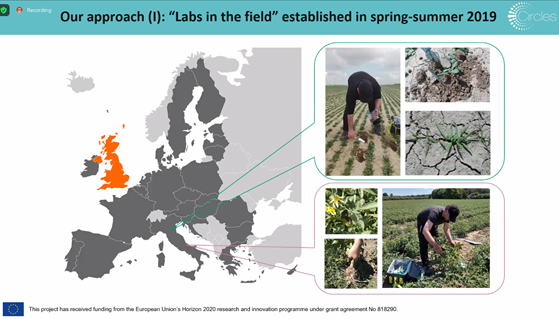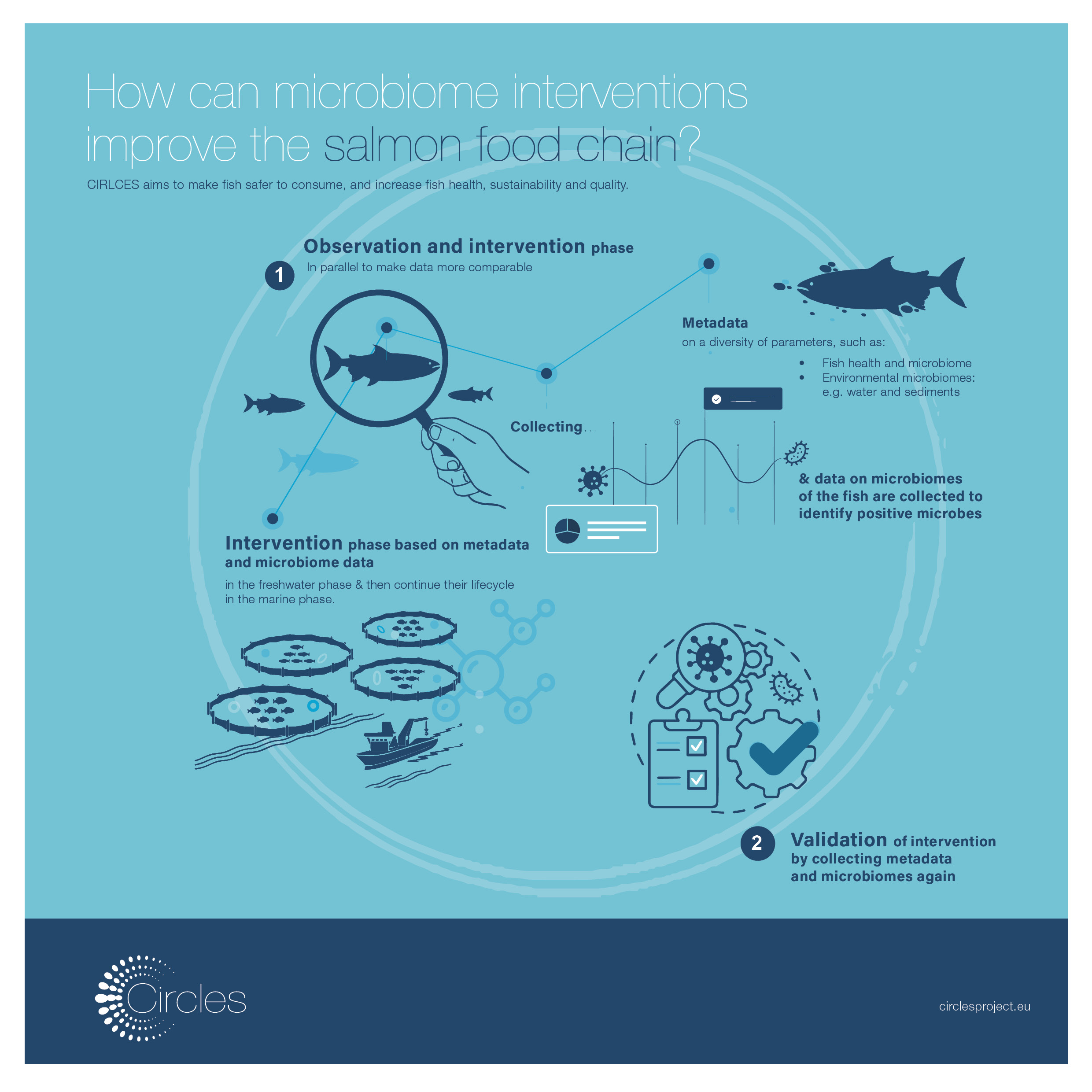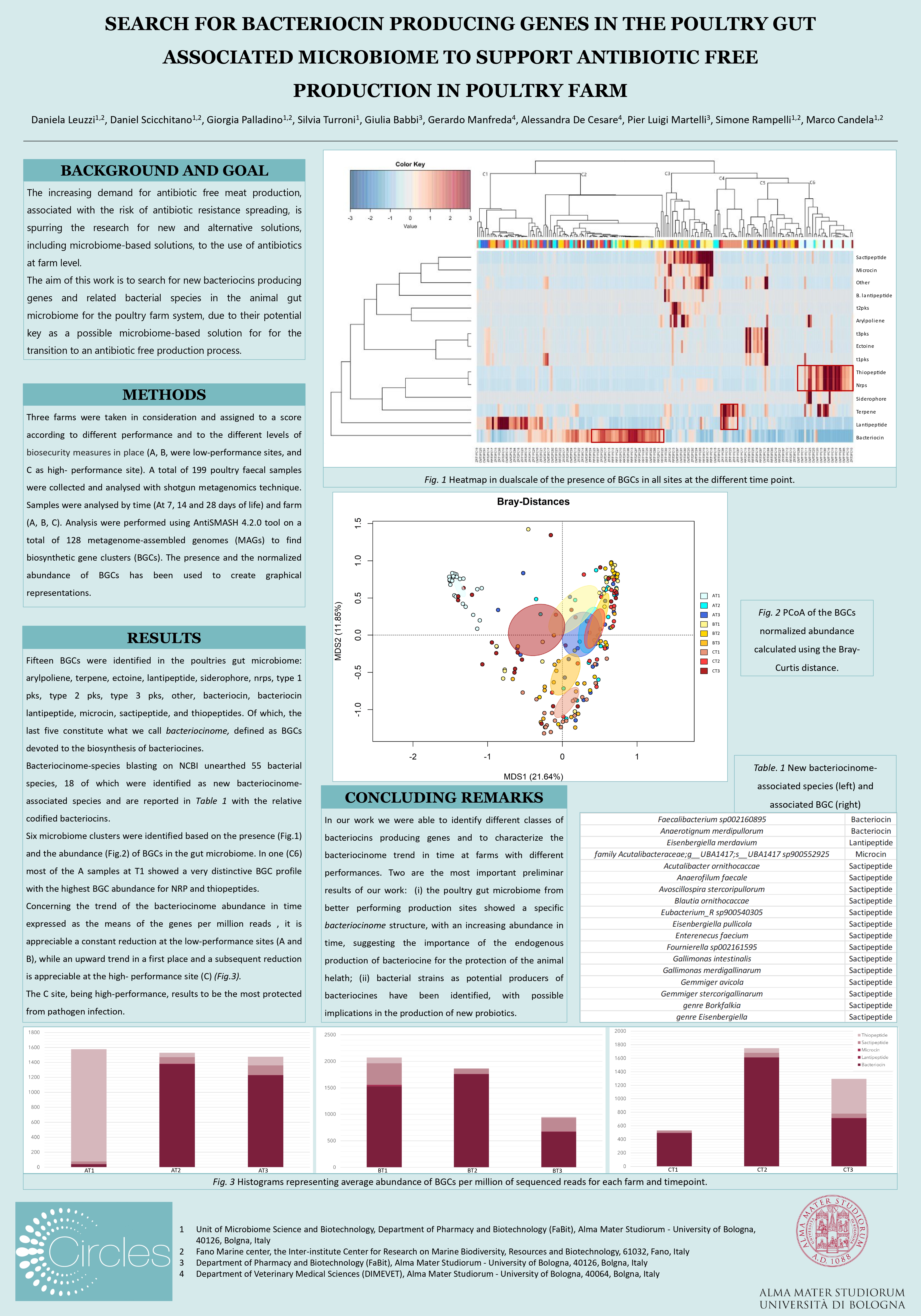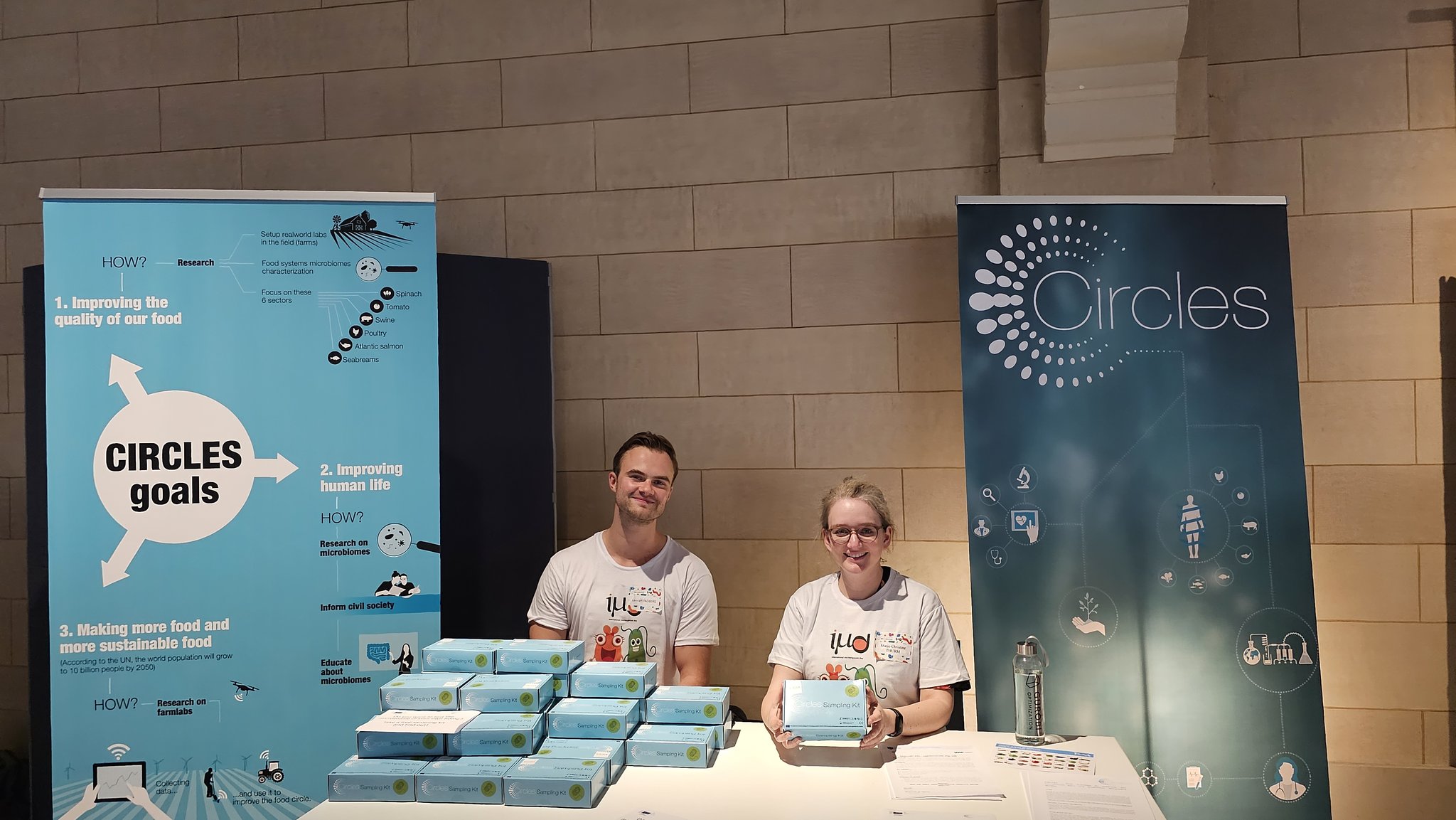On 25th March 2022, the first SIMBA lunch time seminar took place to raise awareness of SIMBA and other Microbiomes4Life projects, working together on one of the next big scientific frontiers: Understanding microbiomes to provide meaningful individual and public health solutions, impact climate change and help transform our food systems.
During the seminar partners discussed how the microbiome can make plant-based foods more nutritious and sustainable and improve the cultivation of tomatoes and spinach. CIRLCES partner Davide Bulgarelli from University of Dundee was among the speakers, explaining the project to a non-expert audience, by showcasing analogies between plant microbial interactions and our human gut microbiome.
Watch the recording of the webinar here, or find below a summary of the three presentations.
How can the microbiome improve microalgae?
Tamara Santós, Marine biologist from University of Algarve, Center of Marine Sciences in Portugal, showcased how within the SIMBA project they work with marine microbiomes to produce sustainable high-quality food. More specifically, Tamara explained how the microbiome can improve industrially produced microalgae.
Via interactions between microalgae and microbiome, compounds are exchanged. They found that this co-culture shows an increased productivity while also improving the quality of the biomass. In addition, she explained the impact of different microalgae species as well as production systems.
The results so far are very positive, indicating that microbiomes are a promising tool to improve food nutrition and security.
Fermentation as a tool to improve plant-based foods
Emilie Jørgensen, Head Engineer at the Faculty of Chemistry, Biotechnology and Food Science, Norwegian University of Life Sciences (NMBU) showed her university’s contribution to the SIMBA project, improving the nutritional quality of sustainable foods.
There is an increased demand for plant-based products and the use of microbial fermentation can be a tool to produce novel foods from plant-based raw material. NMBU, together with LUKE, works on ensuring a high nutritional quality of these novel foods (e.g. based on pea and faba beans). They also look at the side streams of microbial processing and the digestibility of these products.
Preliminary results show that fermentation has the potential to improve nutritional quality and new products could possibly be effective as probiotic bacteria.
Learning from nature to improve tomato and spinach cultivation
Davide Bulgarelli, Senior Lecturer (Teaching & Research) / Principal Investigator at University of Dundee, introduced microbiome investigations in the CIRCLES project.
He highlighted the importance of plant-microbiomes, which support the exchanges between plants and soil, e.g. facilitating the acquisition of minerals, protecting plants from parasites and supporting plants to tolerate abiotic stress such as extreme weather conditions. Davide also made an analogy between plants and humans, showcasing that the way we look at plants is very similar to the way medical scientists look at the microbial communities in our own digestive systems.
He then explained how Circles is focusing on different food chains, two of them being spinach and tomatoes.
The observation phase is the first step as it is crucial to allow researchers to learn from nature – in CIRCLES via labs in the field, that help the project team to work closely with farmers. Afterwards in the intervention phase, they manipulate factors related to the microbiome to see if there is a beneficial effect on the plant’s productivity and the sustainability of the crop production.
By modulating plant-microbiota interactions in the field and moving away from non-renewables input in the agroecosystem, farming can become more sustainable.
The lab group of Davide Bulgarelli will keep on investigating the genetic and molecular drivers of plant-microbe interactions for food security and sustainability – follow them on Twitter to learn more and stay updated on some interesting open research questions, e.g. using sequencing data to find out about the dynamic of the ‘core’ and ‘plant-specific’ microbiota across seasons.

